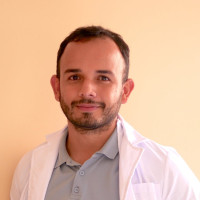Pandemics & Infectious Diseases
Terresterial Biodiversity
Climate Change
Zoonose & Vector Borne Diseases
Insects & Pollination
Climate Adaptation & Resilience
Ph.D
France
2008.10.31
Host factors involved in Chikungunya virus infection
Changing Climate, Emerging Disease
Biography
I earned a Bachelor’s Degree in chemistry, biology and biophysics from the University of Paris 5, and a Master’s Degree in infectiology, microbiology, virology and immunology from the University of Paris 7. In September 2008, I began my PhD project in virology at the Institut Pasteur within the group directed by Professor Marc Lecuit (Microbes and host barriers, Inserm avenir and Institut Pasteur). My work focuses on the cell biology of Chikungunya virus infection.
Research work
My research focuses on a virus transmitted by mosquito bites, known as Chikungunya virus (CHIKV). Chikungunya virus is an arbovirus that has recently re-emerged and is responsible for a massive outbreak in the Indian Ocean region and India. It has a very significant potential to spread globally given the expanding distribution of its mosquito vectors in the contexts of globalisation and global warming. CHIKV induces a mild disease in humans characterised by fever, arthralgia, myalgia and rash, but cases of severe CHIKV infection have also been described, particularly in adults with underlying conditions and neonates born to viremic mothers.
My project focuses on the cell biology of the infection. More specifically, I intend to decipher the molecular mechanisms underlying CHIKV’s entry into target cells and its dissemination to neighbouring cells. This project should not only enrich our basic understanding of the biology of this poorly characterised virus, but should also help define new therapeutic and preventive strategies.
AXA Fellowship
Being selected as a recipient of the AXA Fellowship has provided me with the necessary funding to complete my PhD. This prestigious award will also foster recognition of the quality and general interest of my research. This award illustrates AXA’s interest in basic science and how investment in basic science translates into minimising the risks associated with emerging infections and global warming.
To add or modify information on this page, please contact us at the following address: community.research@axa.com

Delphine
JUDITH
Institution
Institut National de la Santé et de la Recherche Médicale
Université Paris XII - Henri Mondor
Country
France
Nationality
French
Related articles
Medical Treatment & Drug Development
Terresterial Biodiversity
Agriculture, Crops & Soil Health
Biotech- and Nanotechnology
Insects & Microorganisms
Vaccines
Post-Doctoral Fellowship
Argentina
Harmless and Eco-Friendly Solution as an Alternative to Replace Synthetic Agrochemicals
Agrochemicals were introduced to protect crops from pests and enhance crop yields. However, they have become a long-standing concern due... Read more

Johan
RODRIGUEZ MELO

